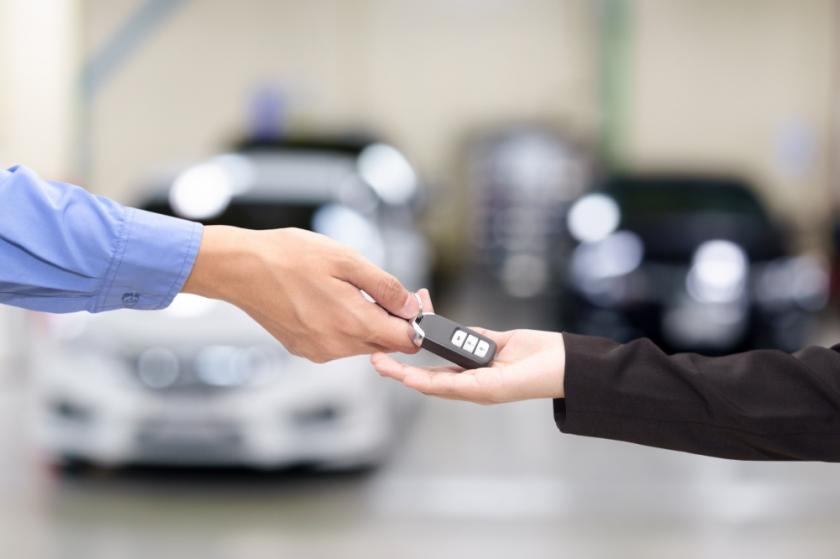How Popular is Car Leasing in the UK?

Car leasing has long been the go-to option for businesses providing company cars - but the rest of us were a little slower to catch on. We took out loans and spent our time saving for new cars, whilst companies leased them. They got their staff driving around in brand-new, high-end cars without the outlay.
Over the past decade or so however, UK drivers have become more likely to choose leasing over purchase - personally, not just through their work.
There are pros and cons to both leasing and purchase, which we’ll go through in this article.
Read more: Best First Cars For New Drivers
The pros and cons of car leasing:
Pros
-
You pay a monthly sum, with no unexpected extra maintenance fees (repairs are often still covered by the manufacturer's warranty, and repairs and maintenance are included if you’ve opted for a maintenance package).
-
You drive a top-of-the-range car for lower monthly fees, with no outright bank-bursting purchase.
-
You may be able to afford to lease a car you couldn’t afford to purchase.
-
You don’t need a bank loan for a purchase.
-
You can upgrade to a new model after your contract runs out.
-
There’s no risk of depreciation, as the car isn’t yours to sell at the end.
-
Tax-efficient for businesses/company cars.
-
If you choose electric, you can take advantage of rapidly excelling technology and swap for the latest model with all the tech updates every few years, with no worries about battery life diminishing.
Cons
-
You will never own the car outright.
-
You’ll have annual mileage allowances. Though you can avoid this by requesting a higher mileage with your contract.
-
You will be charged for any damages.
How does car leasing work?
Car leasing is basically renting a car. You will confirm a fixed rental period, which is usually two to four years, and pay a monthly sum throughout this period.
You can usually choose to put down a bigger deposit and then pay less monthly, or a smaller initial deposit and larger monthly rental payments.
You basically choose the vehicle you’d like to lease, contact us for a quote, then apply if it suits you. Following an adequate credit check, you’ll be ready to order our vehicle, and then start your lease!
Check out our guide here on how car leasing works for a more in-depth response.

Leasing a car versus buying
Leasing a car means paying a monthly sum which is calculated as the difference between the purchase price and the residual value (this is the predicted price of the car once your lease is over). There is no interest on this total (unlike with Personal Contract Purchase, or PCP). You also need a lower deposit - you can often lease for as little as one month rent as your deposit (although your monthly repayments will be lower if you put a higher deposit down initially).
If you’re a keen driver, the potential of driving a new vehicle every few years, and being able to take advantage of updates, is a real draw for leasing. This is especially pertinent in the EV field, where this amazing tech is improving year on year. Whilst electric cars tend to come with a hefty price tag, leasing makes an EV affordable, and also allows you to move on to an upgraded model when your contract ends.
Read more: The Newest Car Technology in 2021
Cars tend to remain maintenance-free for the first few years - hence, the manufacturers usually give a few years’ warranty. A leased car likely still falls into this protected period, meaning any problems with the car will likely be covered. Older cars tend to cost more to maintain, as they begin to have maintenance and repair issues - and these are no longer covered under that initial manufacturer’s warranty. You also don’t need to pay for an MOT for a vehicle under three years old - and road tax is almost always included in your lease price, so some regular driving costs are eliminated.
Of course, if you buy a car you have a tangible object to sell whenever you want to, and this is not the case with leasing a car. Just like renting a home.
As a business owner, even if you’re a one man band or an SME, you can reclaim up to 100% of the VAT on your contract with business leasing. You are also allowed to claim VAT against maintenance costs and any excess mileage charges - so leasing may be a real option for a business owner. The amount you pay (50-100%) is based on the vehicle’s emissions score, as well as the P11D value of the car and your personal tax bracket) so choosing EV or low emission really makes financial sense here.
Is Car Leasing popular?
In the UK, the latest industry stats suggest over 1.6million people are now choosing to lease rather than buy, and according to Which?, three quarters of new cars in the UK currently are bought on finance.
What percentage of new cars are leased in the UK in 2021?
The latest industry statistics say over 1.6 million people now lease a car in the UK. With 21% of the population under 18, you can see that there are a significant number of UK adults who are choosing to lease rather than buy. According to the British Vehicle Rental and Leasing Association (BVRLA) as quoted in the Financial Times, leasing grew by 14% in 2019, and they estimate that 5 million vehicles on Britain’s roads today are leased - 1.9 million of those being individual, or personal, contracts. It is certainly an option gaining credibility, and popularity, with the UK driving population today.
If you’re considering leasing, why not browse the Rivervale range today, and get in touch with any questions or request a callback at a time that suits you.





